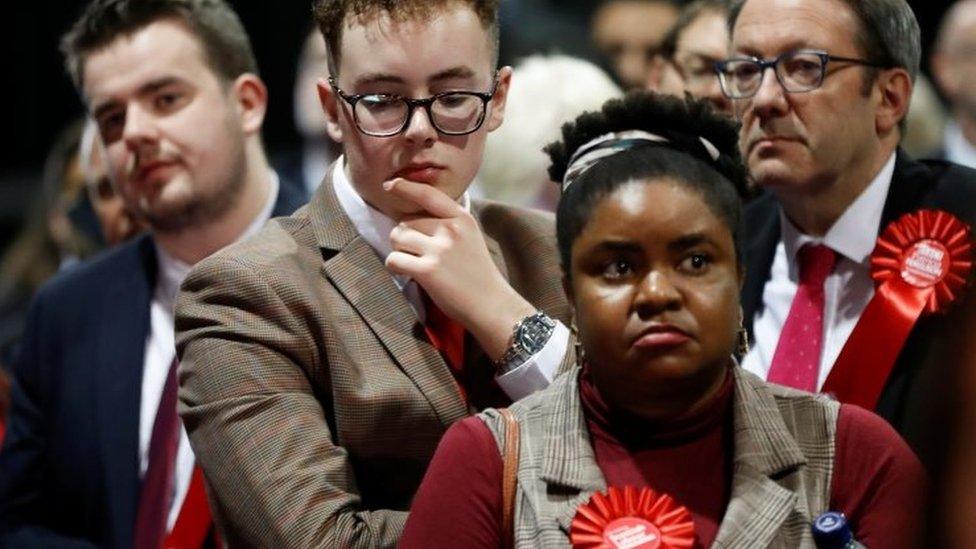Election 2019: Britain's most diverse Parliament
- Published
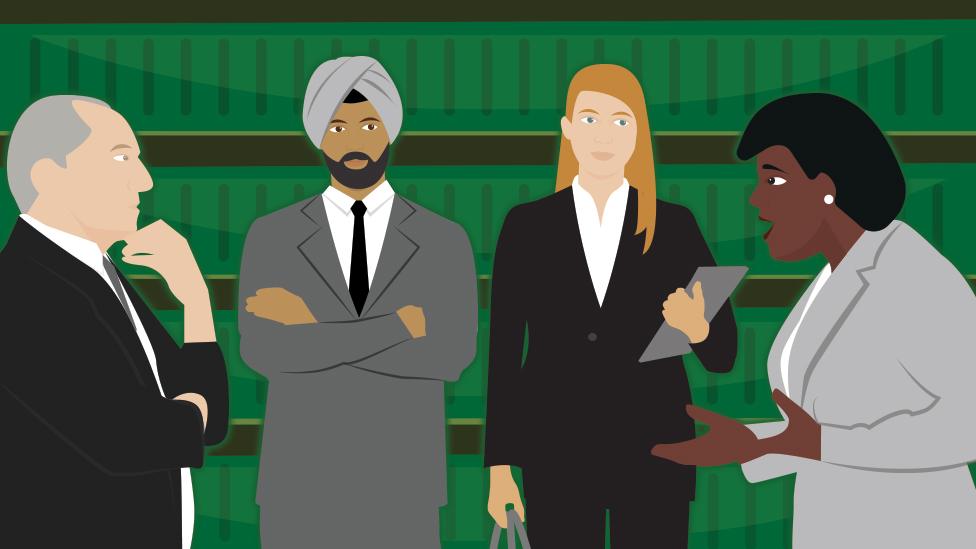
In terms of gender, race and sexuality, the group of MPs elected last Thursday are the most diverse so far, although women still lag way behind men in terms of equal representation in the House of Commons.
The proportion of MPs from ethnic minorities, although growing, is also lower than that of the UK's population as a whole.
There are 140 first-time MPs in the 2019 intake and 15 who are returning to the benches having sat previously, although not in the last Parliament.
Most of these are new Conservatives, but only the Greens and Plaid Cymru are returning without any new MPs.
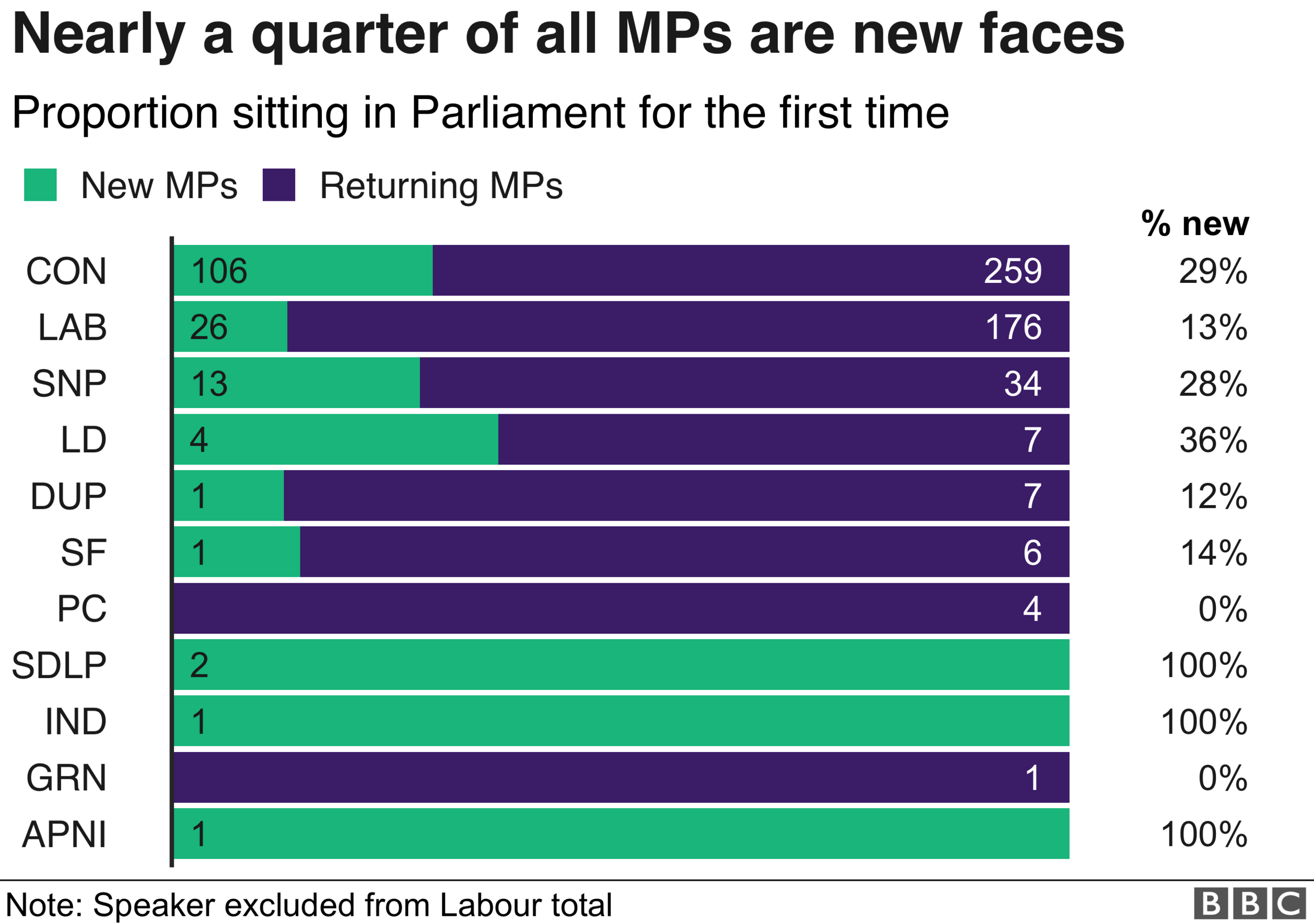

More women than ever before
A total of 220 female MPs were elected last Thursday, 12 more than the previous record of 208 in the 2017 general election.
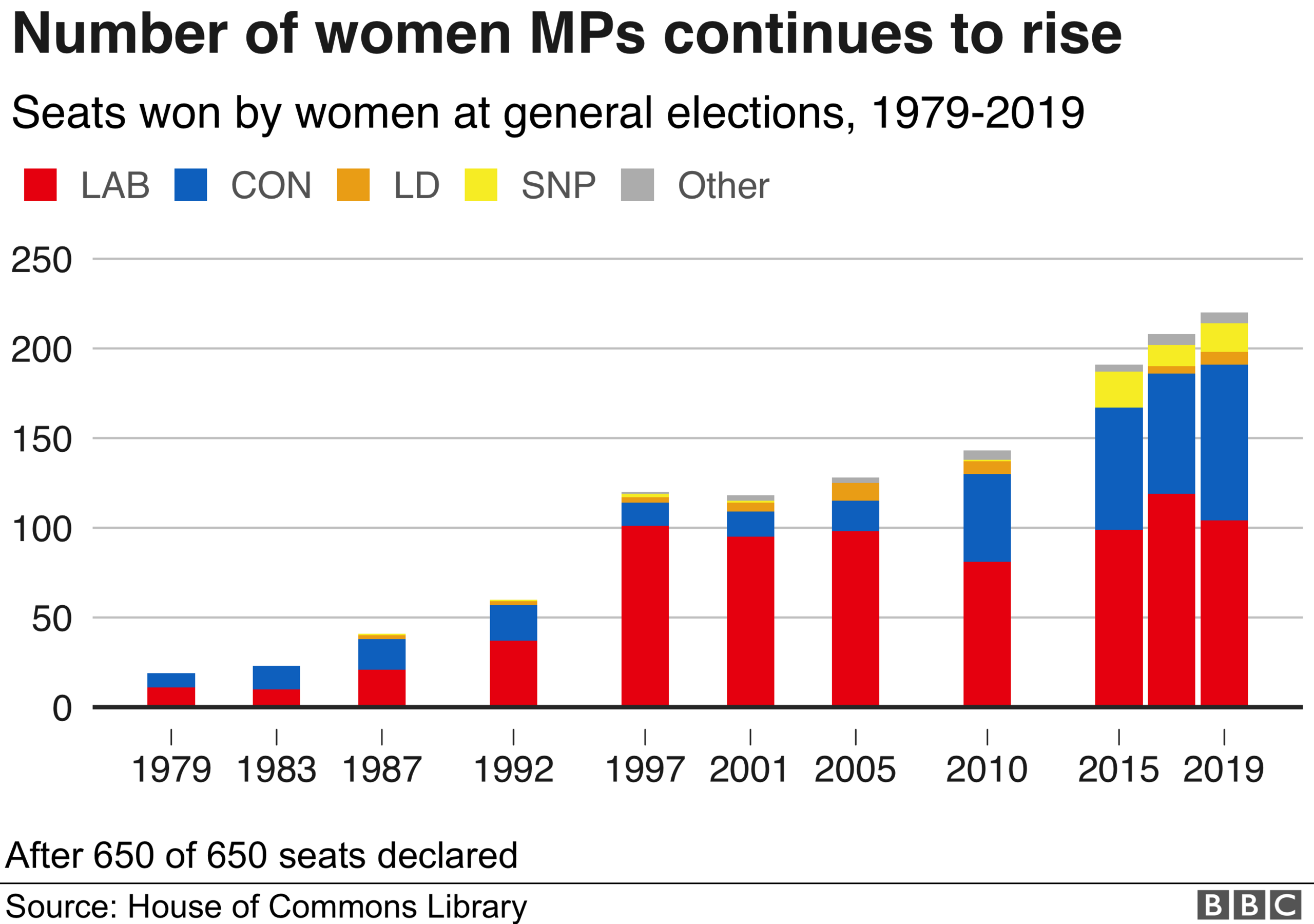
For the first time, both the Liberal Democrats and Labour have more women MPs than men.
Of Labour's 202 MPs (excluding Speaker Lindsay Hoyle), 104 are women - and of the Liberal Democrats' 11 MPs, seven are women.
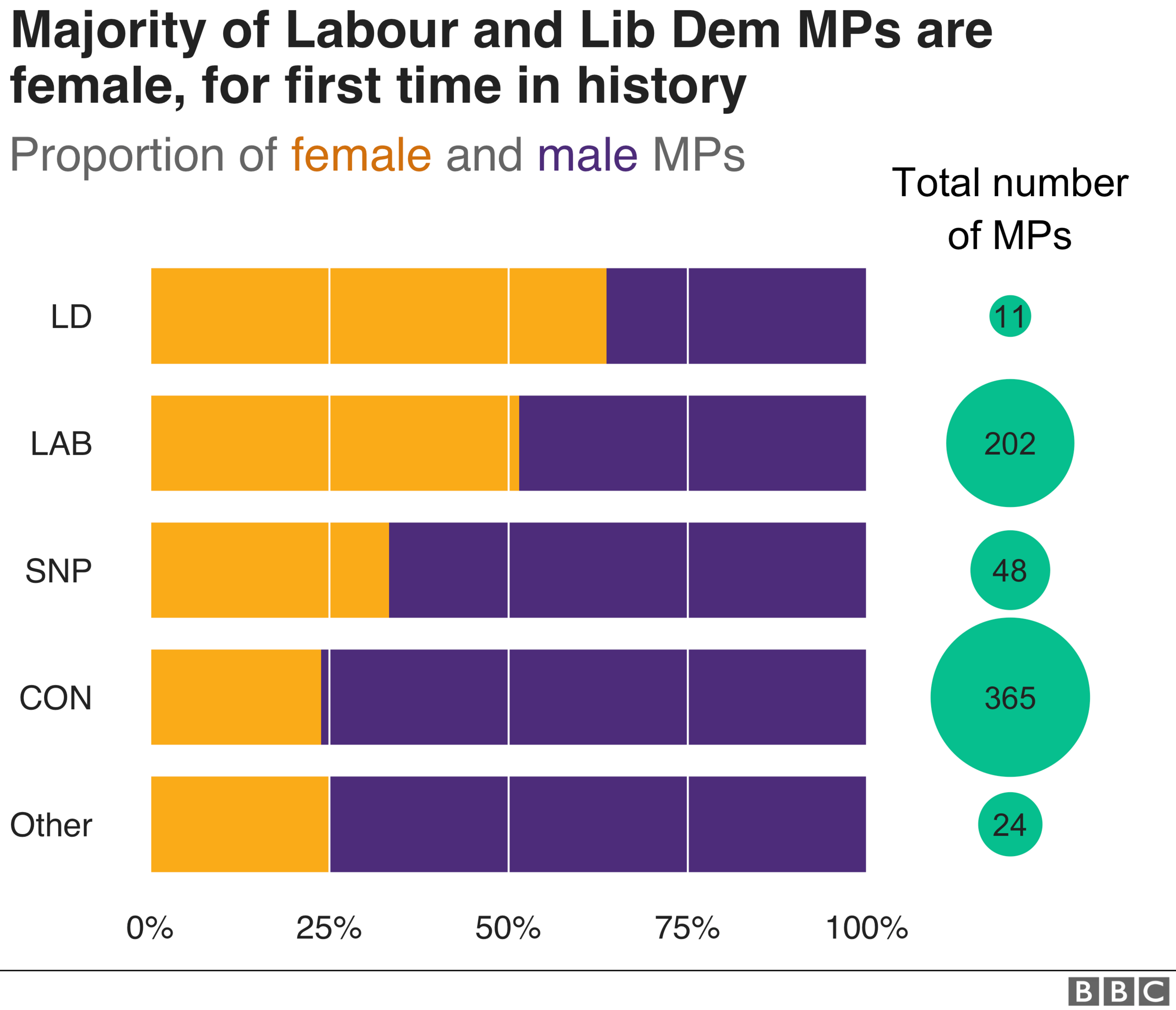

Find the result from your area with our look-up.
Record number of ethnic minority MPs
One in ten of the 650 MPs elected this year are non-white.
Ten years ago just one in 40 MPs was non-white, according to research by the independent think tank British Future.
There are 13 more non-white MPs than in the last Parliament, but all represent English seats.
There are no black, Asian and minority ethnic MPs in Scotland, Wales or Northern Ireland.
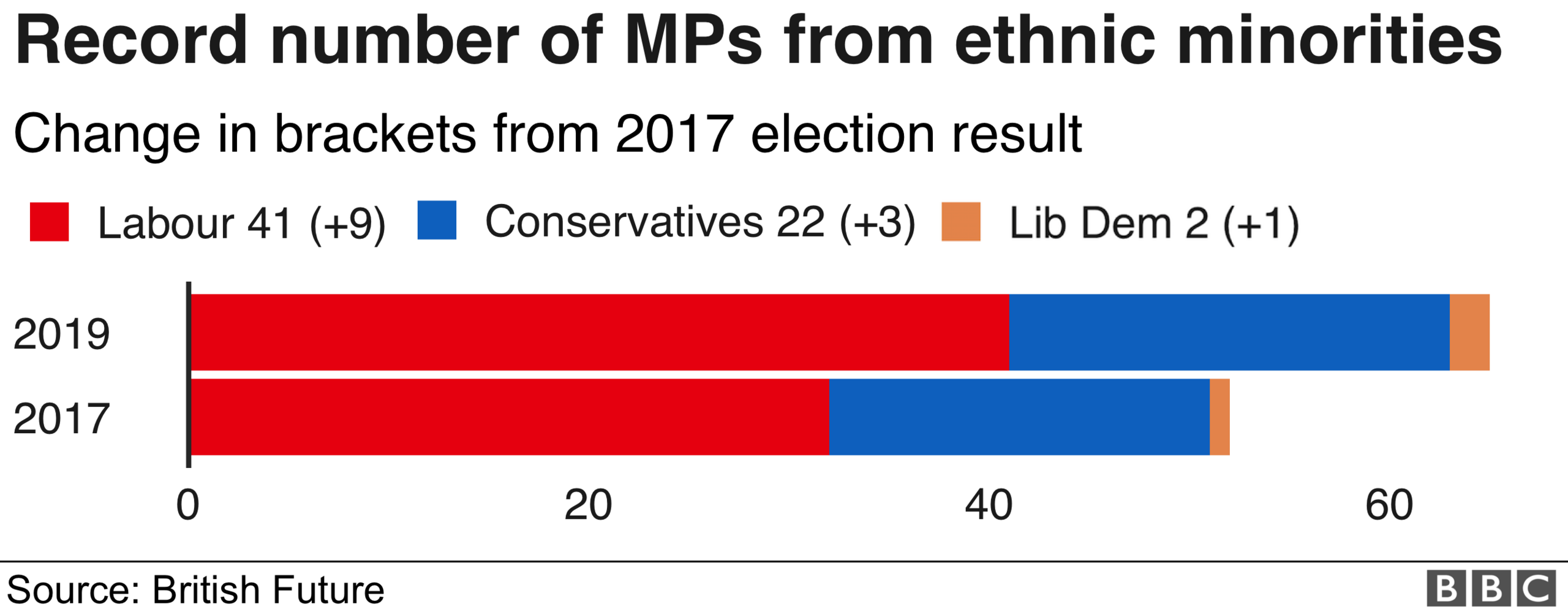
Despite losing MPs overall, Labour increased their representation of black and minority ethnic MPs. Half of the 26 new Labour MPs are from ethnic minority backgrounds.
That figure includes Sarah Owen, Labour's first British Chinese MP, and Kim Johnson, the first black MP in Liverpool.
One in five Labour MPs are now black or minority ethnic, compared with 6% of Conservatives.
The non-white population across the UK as a whole was 14%, according to the 2011 census.
At least 45 MPs are openly gay
Among the 650 MPs are at least 45 who are openly gay, lesbian or bisexual - and have referred to their sexuality in interviews or other public statements.
The Scottish National Party has the highest proportion, with nine of its 47 MPs openly gay.
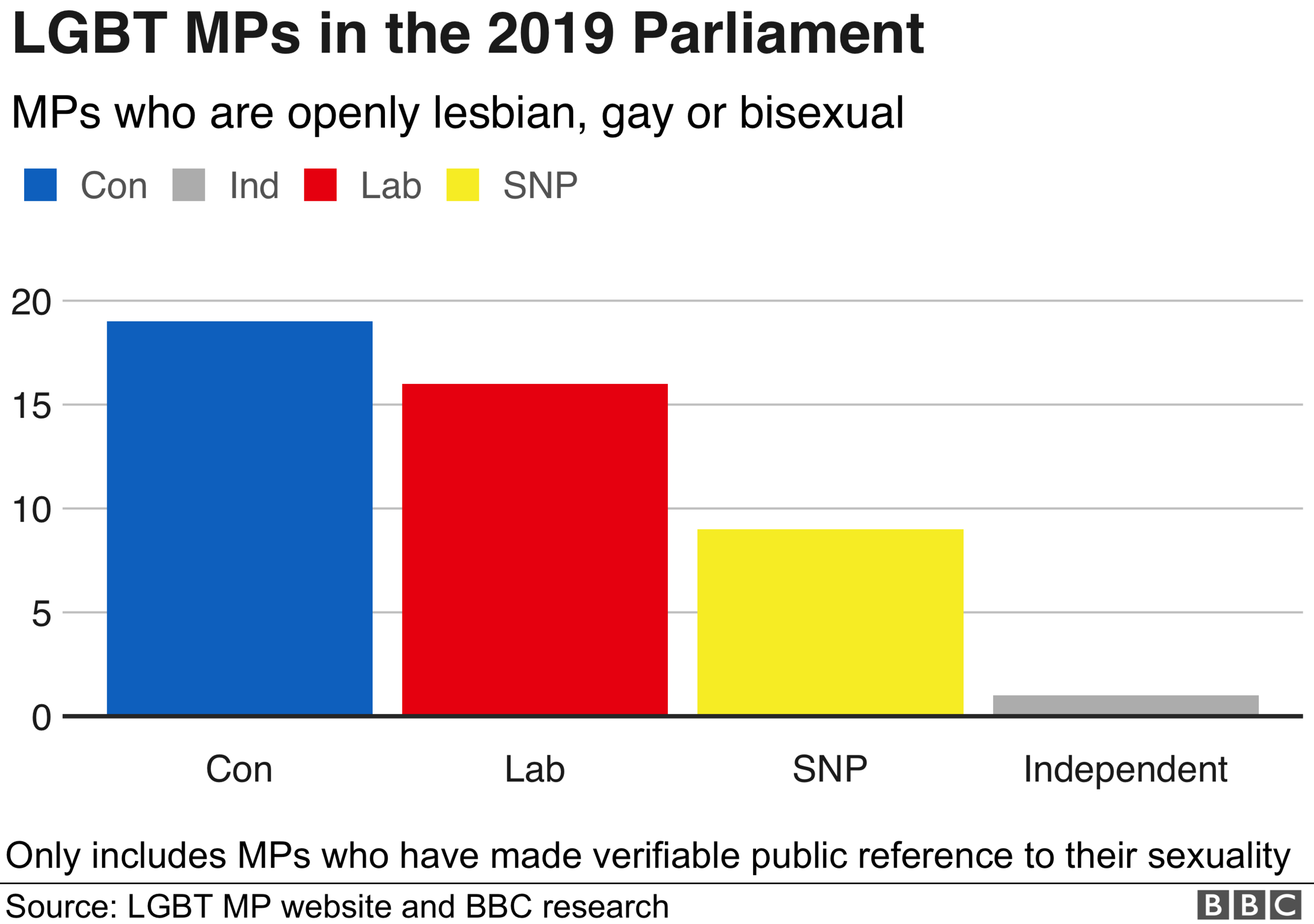
Independent schools still over-represented
The new Parliament has 173 MPs who went to independent schools. Four in five of these are Conservative MPs, according to figures from the Sutton Trust, an organisation that campaigns for social mobility.
Some 138 Conservative MPs were educated privately, compared with 27 Labour MPs and eight from other parties.
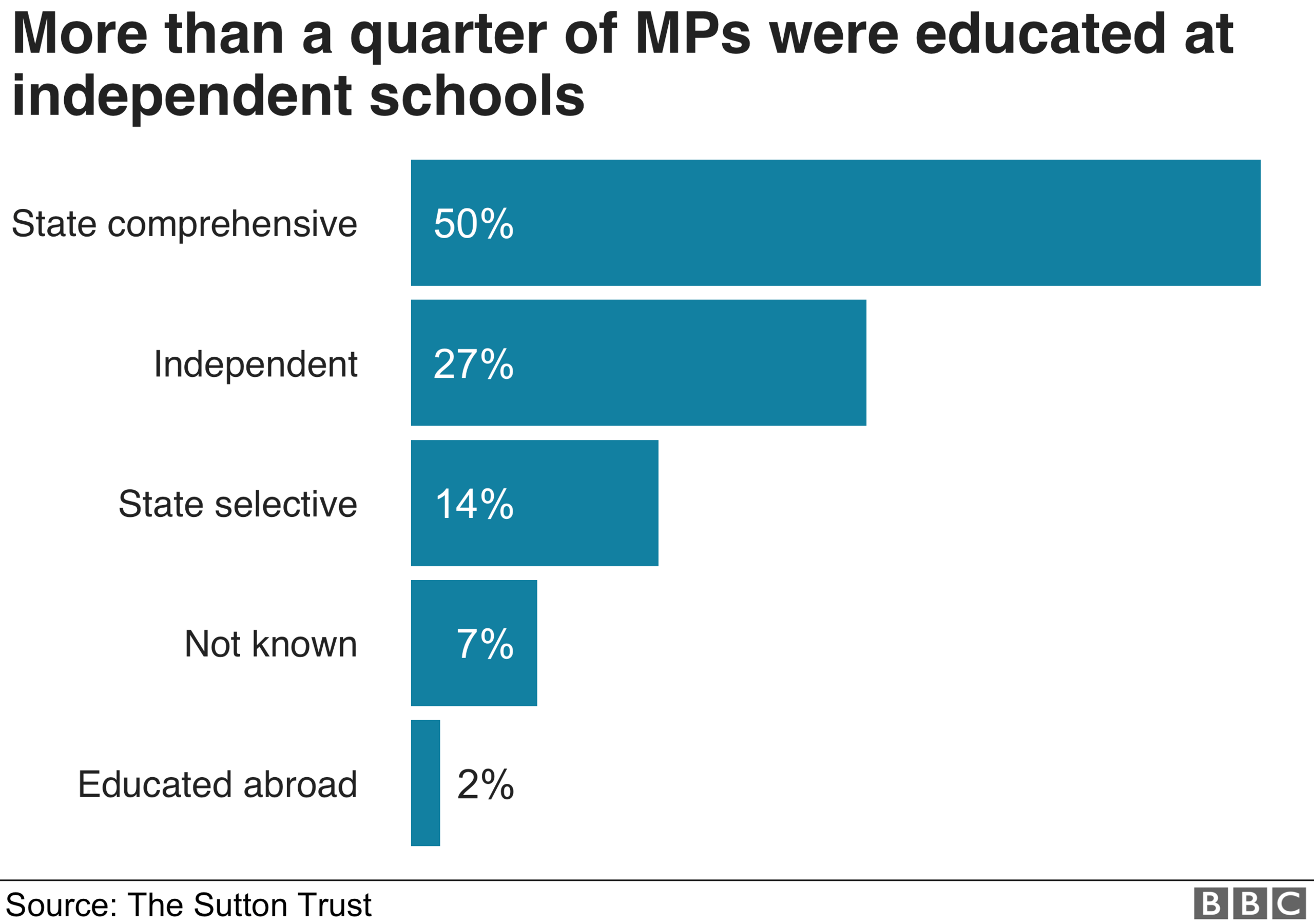
The vast majority of MPs went to university. Twenty-one percent went to either Oxford or Cambridge and a further third to one of the elite Russell Group universities.
Just under 20% of the UK population has been to university.
By Daniel Dunford, Christine Jeavans, Wesley Stephenson, Becky Dale, Will Dahlgreen, John Walton and Irene de la Torre Arenas.
Related topics
- Published18 November 2019
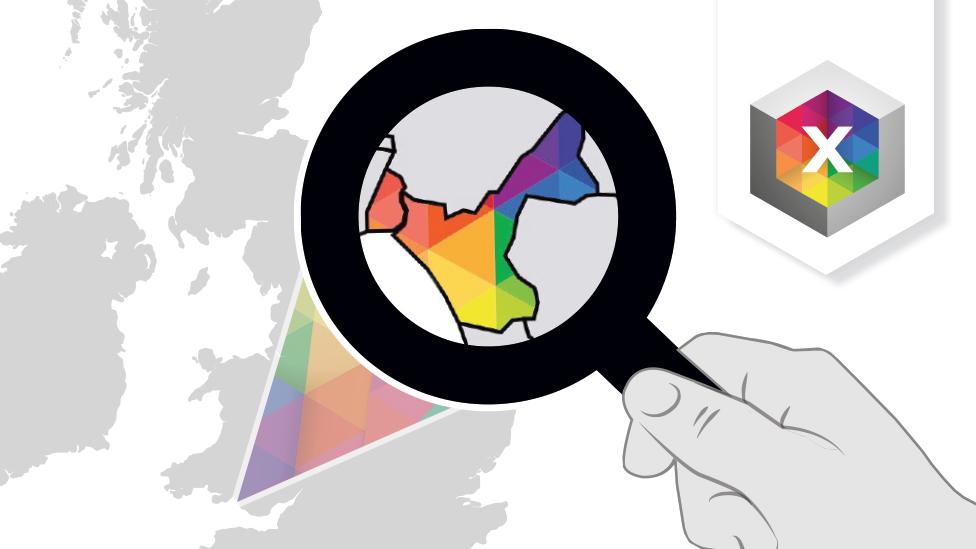
- Published13 December 2019
